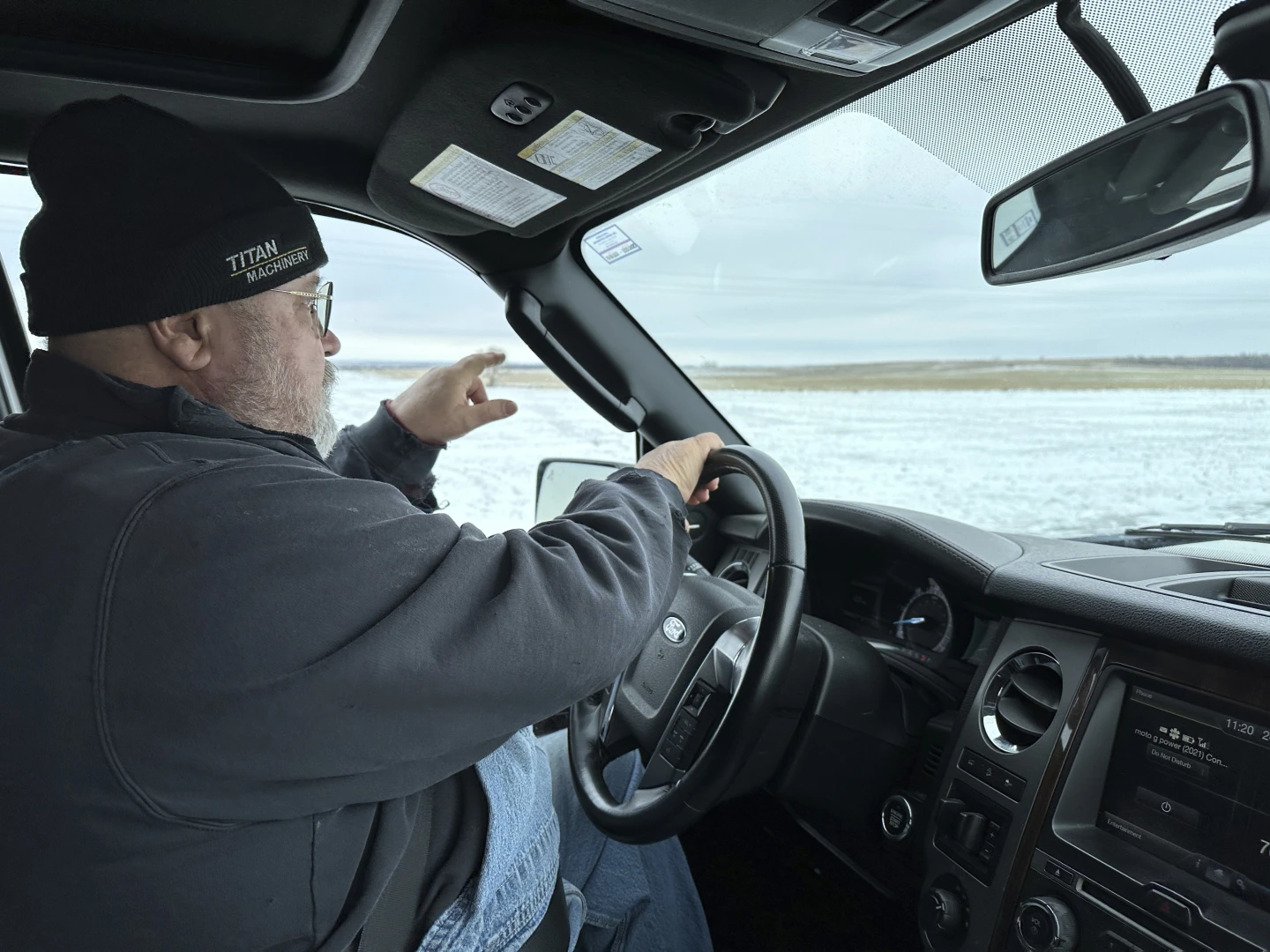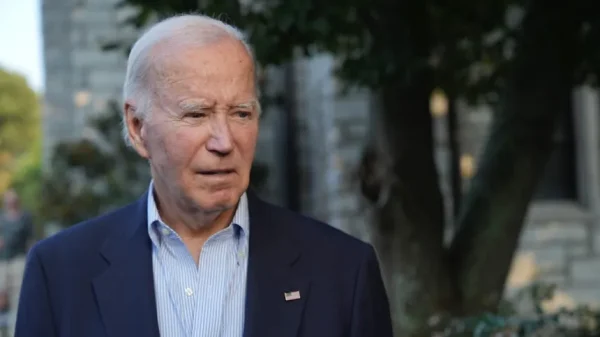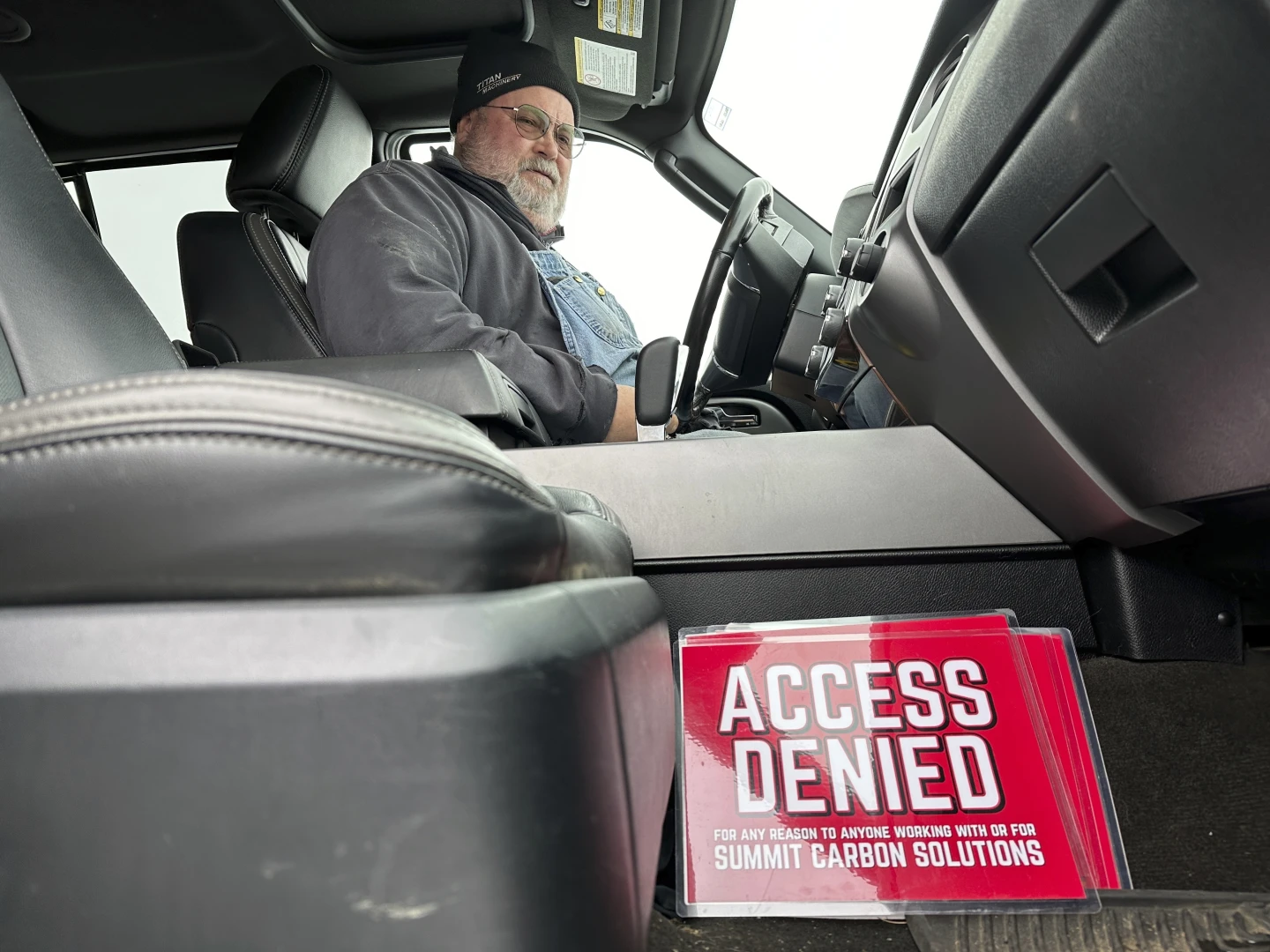In the future, passenger jets flying high over Dan McLean’s North Dakota farm could be powered by corn grown on his land and across the Midwest.
This vision is supported by the U.S. airline industry and seen as crucial by agricultural groups to ensure strong ethanol sales. Ethanol, which uses over a third of the nation’s corn crop, offers a cleaner fuel option for airlines.
However, realizing this vision has faced challenges. It relies on federal tax incentives linked to capturing carbon dioxide at refineries and transporting it hundreds of miles through pipelines under Midwestern fields, including those of farmers like McLean.
Some farmers, along with environmental and property rights groups, have opposed these pipelines in regulatory hearings across the Midwest, often successfully delaying the process. A significant decision is pending in Iowa.

Dan McLean points to where Summit Carbon Solution (Via Benjamin Walsh/Shutterstock)
McLean, who opposes a pipeline crossing his farmland, criticized the use of taxpayer money to fund projects that benefit wealthy private industries.
Supporters have long faced criticism. They argue that tax credits and pipelines are essential for refineries to profit and for the new fuel’s cost to compete with traditional jet fuel.
Opponents view the pipelines as costly, potentially hazardous, and infringing on property rights without effectively reducing greenhouse gases.
Obtaining approval for pipelines has been a difficult process. Several companies have abandoned their plans due to opposition and delays. Summit Carbon Solutions remains a major player, seeking to construct a 2,000-mile pipeline across five Midwestern states, with carbon dioxide eventually stored underground in North Dakota.

























